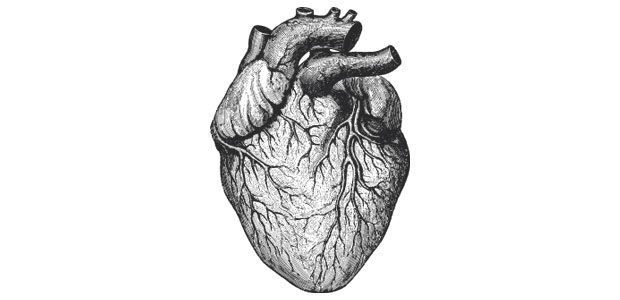Advertisement
3 Key Supplements for a Healthy Heart
Today, your heart will beat at least 100,000 times, pumping 2,500 to 5,000 gallons of blood through the 60,000 miles of blood vessels within your body. Amazing, but true. Having a healthy heart and circulatory system is something many of us take for granted unless we have a family history of heart problems, or have … Continued

Today, your heart will beat at least 100,000 times, pumping 2,500 to 5,000 gallons of blood through the 60,000 miles of blood vessels within your body. Amazing, but true. Having a healthy heart and circulatory system is something many of us take for granted unless we have a family history of heart problems, or have high cholesterol, hypertension or other symptoms that the old ticker might be under stress. Fortunately, there are three key natural products that can help strengthen or support the heart and vascular system.
Policosanol: A Natural Route to Safer Cholesterol Levels
Policosanol is a blend of waxy fatty alcohols from the outer wax of the sugar cane plant. Research, including more than 30 double-blind clinical trials, has shown this natural product to be safe and very beneficial for reducing cholesterol levels. In fact, in these studies, policosanol was shown to be equal to or more effective than standard cholesterol-lowering drugs but without the potentially dangerous side-effects. Policosanol is the most thoroughly researched natural product for cholesterol balance.
How does it work? Only a small fraction of cholesterol in the blood comes from diet; the majority is manufactured by the liver. Policosanol works to reduce cholesterol levels by controlling the liver’s production as well as enhancing the breakdown of cholesterol. It is recommended to those who have elevated “bad” LDL cholesterol levels. People with low levels of “good” HDL cholesterol may benefit also from policosanol use along with dietary and lifestyle recommendations to reduce elevated cholesterol levels. The recommended dosage is two six-milligram tablets at night.
Vitamin E: The Premier Antioxidant for the Heart
Vitamin E is the premier antioxidant that prevents against damage to fatty substances such as cholesterol and cell membranes. Considerable scientific evidence supports vitamin E’s role in protecting against heart disease. For maximum benefit, the world-renowned Shute Institute recommends natural vitamin E in a clear base form of the highest purity. This unique form of natural vitamin E is at least 80 percent more bioavailable than synthetic E and is utilized preferentially over other natural forms of vitamin E. Plus it has no added oils, diluents or artificial ingredients. The recommended dosage given by many health experts is 400 to 800 IU daily.
Coenzyme Q10: The Heart’s Spark Plug
The role of coenzyme Q10 (CoQ10) in the heart is similar to the role of a spark plug in a car engine. Just as the car cannot function without that initial spark, the heart cannot function without CoQ10. More than 20 double-blind studies have shown CoQ10 supplementation improves heart function by increasing energy production in the heart muscle and by acting as an antioxidant.
Although the body makes some of its own CoQ10, considerable research shows significant benefits with supplementation. Also, people with any sort of heart disease, including high cholesterol levels and high blood pressure, as well as those taking cholesterol-lowering drugs, are known to have low CoQ10 levels.
Since CoQ10 is often difficult for the body to absorb, look for products in soft-gelatin capsules or, better yet, look for products where the CoQ10 has been dissolved in pure, natural vitamin E. In this latter form, both CoQ10 and vitamin E are biologically enhanced due to increased absorption, utilization and function. In a preliminary study, blood levels of CoQ10 at six hours after taking CoQ10 dissolved in pure vitamin E produced an increase that was 235 percent greater than the increase achieved with standard CoQ10. The recommended dosage for CoQ10 is generally 50 to 150 mg daily.




